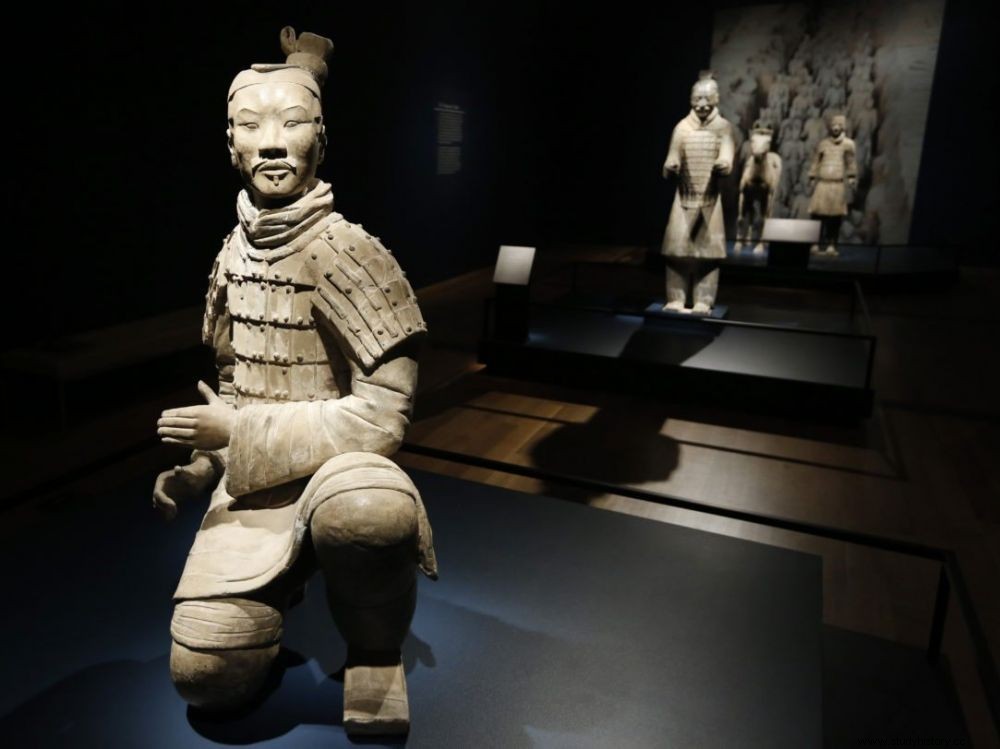The discovery of carved wood fragments suggests that the first emperor of China, Qin Shi Huangdi, was in search of the elixir of immortality more than 2200 years ago.

The terracotta soldiers of Qin Shi Huangdi (221 BC-207 BC) ensured his posterity, but it was immortality that the first emperor of China sought.
ARCHAEOLOGY. The quest for immortality, today carried by the technological giant Google is not a recent fad. More than 2000 years ago, it preoccupied Qin Shi Huangdi, the first emperor of China and founder of the Qin dynasty (221 BC -207 BC). The latter had ordered his administration to find him an elixir of immortality, today shows the decryption of a bimillennial text discovered in the south of the country, reports the new China agency
The obsession of the first emperor for eternal life was already known:he had built the immense underground mausoleum of Xian (in the north of China), filled with nearly 8000 terracotta soldiers intended to protect him in the 'beyond. This army from beyond the grave was discovered in 1974. But by studying texts found in 2002 at the bottom of a well in Hunan province (in central China), archaeologists have just established that Qin Shi Huangdi had also ordered the national search for an elixir that would give eternal life.
The corpus of texts, engraved on wooden slats originally bound together by strings, includes an imperial decree ordering a quest from the four corners of the empire, as well as responses - rather embarrassed - from the local authorities, although struggling to satisfy the monarch.
“A village called Duxiang reported that no miracle cure had yet been found, suggesting that research would continue ”, details Zhang Chunlong, from the Hunan Institute of Archeology, quoted by the New China agency. Another locality called Langya, in what is now Shandong province (in the east of the country), “reported on a herb picked on a sacred mountain ”.
A futile quest
This discovery supports the idea that the first of the warriors to have unified China, “had an efficient administration and a great executive force, at a time when transport and communications were difficult ”, further specifies Zhang Chunlong. Emperor Qin Shi Huangdi had thus standardized the weight systems and created a currency to establish and centralize his power successfully.
The quest for the elixir, however, was in vain:Qin Shi Huang died in 210 BC, after eleven years of imperial rule.
A total of 36,000 slides with more than 200,000 Chinese characters in vertical calligraphy were discovered at the bottom of a well in western Hunan in 2002. This technique was the most common writing medium in China before the appearance of paper, at the beginning of the first millennium of our era. Archaeologists continue to study them to understand their full significance.
R. M. with AFP and Xinhuan
